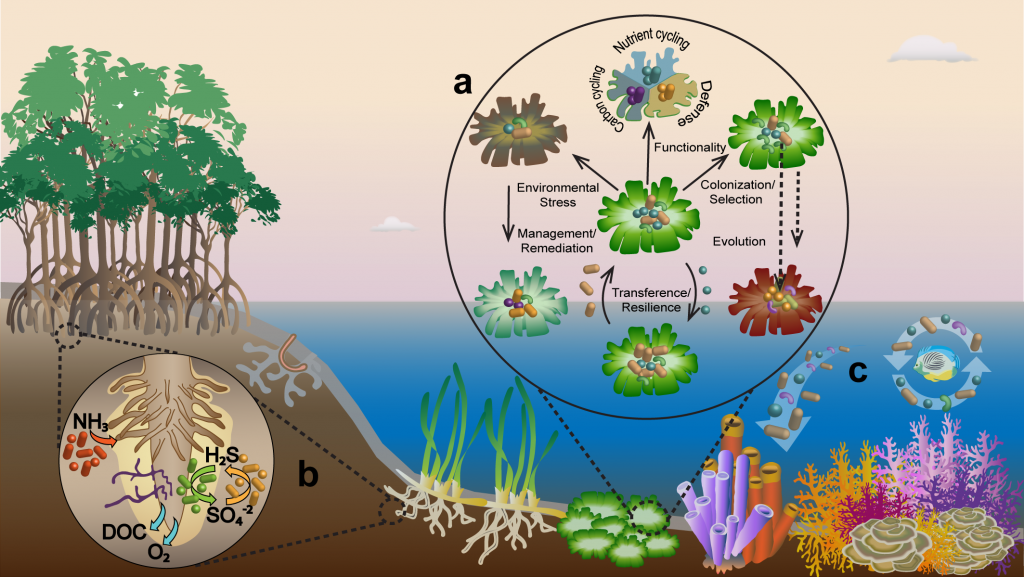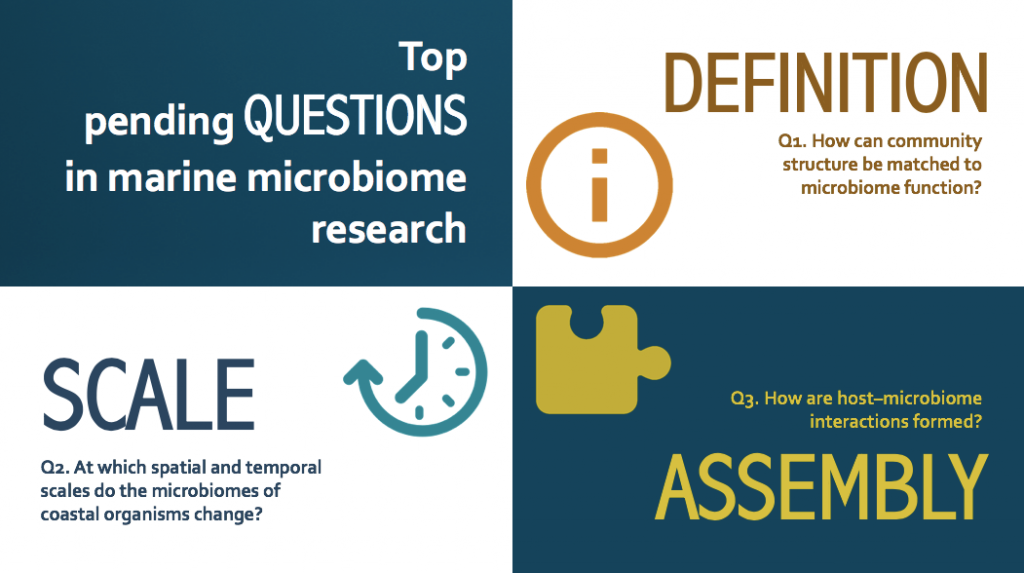World experts set the agenda for coastal microbiome research with an international study highlighting the top seven themes where further research is urgently needed.
Lead author of the study, Dr Stacey Trevathan-Tackett from Deakin University’s Blue Carbon Lab said microbes are indispensable to life on earth, but are often understudied and overlooked by their size.
“Although invisible to the naked eye, microbes are everywhere. In our bodies, our homes and our natural ecosystems. They help us digest our food, fight diseases, and even regulate the Earth’s climate”.
“In the oceans, microbes constitute the majority of biomass and act as ‘master controllers’ of major biogeochemical cycles. This means they can affect things like water quality, fisheries productivity, and even climate change”.
Despite exponential efforts to increase our understanding of microbes on our coasts, scientists still have big list of knowledge gaps that remains unsolved.
Using a horizon scanning approach (survey research) world experts identified 108 questions under seven research themes. Themes included the complex relationships between communities of microorganisms (the ‘microbiome’), hosts and their microorganisms (the ‘holobiont’) and their surrounding environment.

Conceptual diagram depicting the major research themes in coastal marine microbiome research. The diagram highlights interactions at multiple spatial levels. a, Using the macroalgae Ulva sp. as an example, the inset highlights six host–microbiome interactions and associations in relation to the ‘baseline’ holobiont (centre host + microbiome). b,c, More broadly, the holobiont-scale of interactions and associations can also apply to large-scale (b) or ecosystem-level (c) scenarios, whereby the holobiont interacts with environmental microbiomes (eg sediments/substrates, seawater) and neighbouring inter- and intraspecies holobionts, while also being influenced by environmental or climatic conditions (not depicted here). DOC, dissolved organic carbon. Illustration by Leena Koop.
The report, A horizon scan of priorities for coastal marine microbiome research, was published today in Nature Ecology and Evolution and co-authored by twenty-three authors spanning 12 institutions from Australia, Europe, Saudi Arabia and the United States.
Lecturer Dr Megan Huggett from the University of Newcastle said the report provides a roadmap for future microbiome research.
“By prioritizing key questions for future research, this report will allow for better assessments of how microbial processes truly influence the ecology and health of coastal marine environments”
“It is critical to stimulate international research collaborations and boost the use experimental approaches to tackle this large list of open questions” said Dr Huggett.


PAPER
Trevathan-Tackett S, Sherman C, Huggett MJ, Campbell AH, Laverock B, Hurtado-McCormick V, Seymour J, Firl A, Messer L, Ainsworth T, Negandi K, Daffonchio D, Egan S, Engelen AH, Fusi M, Thomas T, Vann L, Hernandez-Agreda A, Gan HM, Marzinelli EM, Steinberg PD, Hardtke L, Macreadie PI. A horizon scan of priorities for coastal microbiome research. Nature Ecology and Evolution. doi: 10.1038/s41559-019-0999-7
